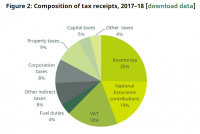Sp0_0k
- Messages
- 1,247
- Vehicle
- T6 Beach 4Motion
I think they will get there at some point.
The batteries improve over time. Tesla improved them just recently.
So the current technology alone is pretty viable. You'll need a huge battery to be able to go 500 miles.
But. You can put the battery flat on the floor and in almost any shape, resulting in an amazing weight distribution. You get rid of lots of other huge weight of diesel engine, gearbox, fuel tank etc.
4 engines mounted right on wheels again superb weight distribution and epic 4wheel drive and power.
I see it a completely possible even with current technologies. It is just a huge number of zeros on investing into new designs even with existing technologies.
Add a solar panel surface all over the vehicle (foil technology) resulting in like a 1kwh power at max.
How long did it take VW to make simple electric cars after Tesla Nissan and others?
I see other brand making a decent electric van sooner. Maybe even Tesla.
I follow lots of enthusiasts rebuilding vans to electric. It isn't that hard first of all
The batteries improve over time. Tesla improved them just recently.
So the current technology alone is pretty viable. You'll need a huge battery to be able to go 500 miles.
But. You can put the battery flat on the floor and in almost any shape, resulting in an amazing weight distribution. You get rid of lots of other huge weight of diesel engine, gearbox, fuel tank etc.
4 engines mounted right on wheels again superb weight distribution and epic 4wheel drive and power.
I see it a completely possible even with current technologies. It is just a huge number of zeros on investing into new designs even with existing technologies.
Add a solar panel surface all over the vehicle (foil technology) resulting in like a 1kwh power at max.
How long did it take VW to make simple electric cars after Tesla Nissan and others?
I see other brand making a decent electric van sooner. Maybe even Tesla.
I follow lots of enthusiasts rebuilding vans to electric. It isn't that hard first of all

















